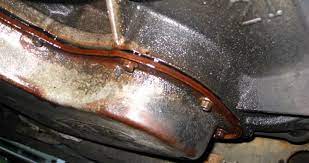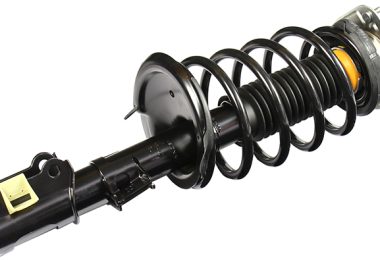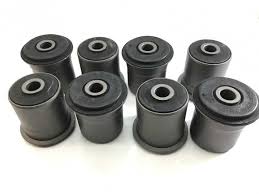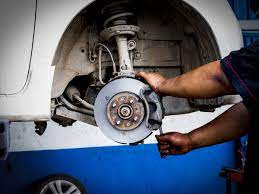Symptoms of burnt transmission fluid; burnt transmission fluid is a common issue with cars. It’s not uncommon for a transmission to burn out, especially if you don’t change the fluid often enough or if you have a leak. The best way to prevent this issue is to get your car serviced regularly at a local mechanic shop or dealership. If your car smells like burnt plastic, has leaks in its transmission area, or experiences slippage when shifting gears, these are all signs that it may need some professional attention before it becomes dangerous for you and your passengers.
A burnt, burning smell or odor from the transmission
Burning smells, and especially burnt smells, are a sign that the transmission is overheating. In this case, the oil in your vehicle’s transmission is overheating and boiling. This can damage or even destroy your car’s transmission if left unchecked. If you notice a burning odor emanating from underneath or around your vehicle’s transmission, it’s time to take action before things get worse!
The burning smell may be accompanied by other symptoms as well:
Dark, dirty transmission fluid
If you notice that your car’s transmission fluid is dark and dirty, this may be an indication that the transmission has been overheated. A burnt-out or overheated transmission can be caused by several things, including a bad thermostat or water pump. If you suspect that your car has a burnt-out or overheated transmission, do not drive it until it has been repaired by a professional mechanic.
There are some symptoms of burnt transmission fluid that are more obvious than others—for example, black smoke coming out of the tailpipe is usually indicative of engine trouble rather than a burned-out transmission, but here are some other signs to watch out for:
Transmission fluid leaks around the pan or shaft seal
Transmission fluid leaks around the pan or shaft seal are a sign of a larger problem. The transmission fluid seeping out of your vehicle is an indication that there’s something wrong with the seal, gasket or pan itself. Transmission fluid leaks can also cause additional damage if left untreated. For example, if enough transmission fluid drips onto hot engine parts for long enough periods of time, it will begin to burn off and smoke. This will prompt you to see smoke coming from under your hood—which is never good news!
Transmission slippage
Slippage is when your transmission does not engage properly with the gears. When a car shifts gears, it also shifts its rotational speed to match the speed of the next gear. Slippage happens when this process is interrupted and can result in damage to many components of your car’s transmission. Read Also: Signs Transmission Fluid is Low
Transmission slippage can be caused by burnt transmission fluid, but there are several other reasons why your car might have trouble shifting into gear properly:
- If you’re driving on steep hills or pulling heavy loads, then you may experience difficulty shifting into 2nd or 3rd gear; instead of engaging properly with these gears (and causing slippage), your car will just stay in first gear until you reach less steep terrain or stop pulling so much weight. In this case, it’s likely that your vehicle needs more engine power available for faster acceleration so that it can overcome any steep hills or heavy loads on its own power rather than relying on downshifting into lower gears (which would cause severe engine wear).
- Some models have electronic transmissions where nothing mechanical actually changes speeds, instead everything is controlled electronically by computers inside the vehicle itself! These systems tend not to experience any issues related to burnt oil because they don’t rely on fluids circulating through their systems like older versions did; however if something goes wrong with one particular component within those computers’ programming itself (an example would be an incorrect setting) then slippage could occur even though no actual problem exists anywhere else on those computers themselves…meaning while they’re running correctly otherwise.”
Grinding or rattling sounds when shifting
If you hear a grinding or rattling sound when shifting gears, it could be a sign of burnt transmission fluid. Transmission fluid is the lifeblood of your vehicle’s transmission, and using it properly is essential to keeping your vehicle running smoothly. Let’s discuss how this important liquid works and what happens when you don’t change it regularly.
Transmissions are hydraulic devices that transfer power from the engine to the wheels via a series of gears. To keep those gears turning smoothly, they need to be lubricated with oil; without proper lubrication, heat builds up in internal parts which causes them to wear out faster than they normally would, a process called “metal on metal contact.” This can lead not only to more frequent repairs but also shorter engine life due to increased friction inside both components.
If you suspect you have burnt transmission fluid, it’s best to call a professional mechanic or call a transmission repair shop to get an estimate.
If you suspect that your transmission has been damaged, it’s best to call a professional mechanic or call a transmission repair shop to get an estimate. Transmission repair can be expensive and complicated, which is why it is important that you get all of the details before committing to any work. Transmission repair can also be dangerous, so always make sure that the technician who completed the repairs was qualified and certified by his or her employer. You should always call a professional mechanic or transmission repair shop when something goes wrong with your car’s transmission system because they have the experience and expertise needed to diagnose problems quickly as well as perform successful repairs without causing further damage to other parts of your vehicle. Read Also: Why Is My Engine Running Hot But Not Overheating?
More so, in a busy city like New York, people can get in the habit of ignoring the little things. Most people don’t think twice about transmission fluid until they start to notice a burning smell while they’re driving or when their car starts to slip gears. If that happens, you need to change your transmission fluid right away because if you leave it too long, your vehicle will experience permanent damage. The good news is that changing transmission fluid is simple and cheap, all you need is some basic tools and a little time!
Burning Smell
The smell of burnt transmission fluid is a clear sign of a problem. Overheating can cause the fluid to burn, producing a distinct odor that can be detected in the cabin of your vehicle. The smell is not caused by exhaust, so it shouldn’t be confused with similar smells like those produced by burning oil or other fluids.
If you detect this smell, take your car to an auto repair shop right away so they can inspect your transmission and determine what part needs to be replaced or repaired.
Darker Fluid
The fluid in your car’s transmission should be a light amber color. If it’s darker, that means that it has become burnt and needs to be replaced. In other words, if the fluid is stained brown or black, you’ll need to get your transmission serviced as soon as possible.
Pungent Fluid
A burnt transmission fluid smell is an obvious sign that something is wrong with your vehicle. The smell is similar to that of burnt rubber and it may be more noticeable when you first start the engine. If you are able, open the hood and take a deep breath. You should be able to smell this distinct odor even before you put the car into gear because it tends to travel through ventilation systems even if they’re not working properly.
If you notice this pungent odor coming from under your hood or at startup, it’s time to get in touch with a professional mechanic as soon as possible so they can diagnose the issue and get everything fixed up!
Slipping Gears
Slipping gears is another symptom of burnt transmission fluid, and it can cause damage to both the transmission and engine. When your transmission slips, it means you aren’t getting the right amount of power from your engine to move forward.
To fix slipping gears:
- Fill up with fresh ATF as soon as possible. If you don’t have any ATF on hand, add some water to your existing ATF until you can get some new fluid. This will dilute any remaining burnt fluid in the system and reduce its corrosive effects on other components like seals and bearings.
- Replace damaged seals or gaskets with ones made from a suitable material that won’t melt at high temperatures (such as plastic).
- Change out any worn parts such as clutch plates or bands before they fail completely so that you don’t lose control over what happens next!
Foamy Fluid
The first sign of a leak is usually the appearance of foamy fluid. This means that your transmission is losing its lubrication, which can cause it to overheat and break down. If you see this symptom, take your car in immediately. It’s likely that the transmission will need to be replaced; however, sometimes with just one repair job, an auto technician might be able to save it. Read Also: Causes of Blown Transmission
To avoid having to pay for an expensive transmission replacement job, make sure that you ask any potential mechanics about their experience with fixing burnt transmissions before choosing them as your service provider!
If left untreated for long enough (usually months), burnt transmission fluid can start leaking out onto nearby metal components such as pistons and bearings. At this point there won’t be much left inside your vehicle’s transmission system—which means repairing or replacing it becomes even more expensive than usual due to labor costs associated with replacing all those parts
If you don’t change the fluid, your vehicle could experience permanent damage.
If you don’t change the fluid, your vehicle could experience permanent damage. Transmission problems are expensive to fix and can cause other problems in your car, such as:
- A failing transmission which will require replacement.
- Damage to the engine caused by overheating from a lack of lubrication in the transmission’s oil system.
- Safety issues when driving due to slipping or loss of power from lack of transmission fluid in cold weather conditions.
- Expensive repairs because of premature wear caused by not changing your car’s transmission fluid regularly as recommended.
Conclusion
If you suspect that your transmission fluid is burnt, it’s best to call a professional mechanic or call a transmission repair shop to get an estimate. If the burnt fluid is not treated properly, it can cause damage to other parts of your vehicle as well. A burnt transmission fluid can also lead to higher repair costs, so it’s important that you take action right away! If you notice any of these symptoms, it’s time to check your transmission fluid. You may need to change it if it smells burnt or has a darker color, or if the fluid is foamy or pungent smelling. If you don’t change the fluid, your vehicle could experience permanent damage.







